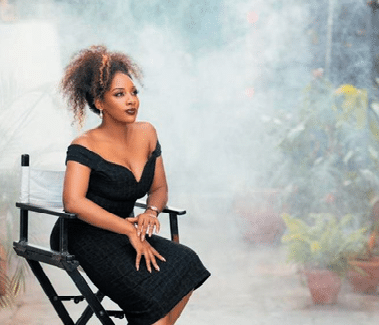Aisha Shehu is using fashion to shift the narrative of the Fulani people in Nigeria.
Aisha Shehu is on a mission to show the world the beauty of the Fulani culture as a modern Fulani woman.
The cultural detail and distinctive colors of the traditional outfits of the Fulani tribe always resonated with Shehu. Both her parents were civil servants so she credits her entrepreneurial spark to her creative and artistic side, which was a constant during her formative years.
However, her path to becoming the next emerging fashion trendsetter was an unconventional one.
The Fulani tribe is a nomadic tribe of herders who migrate with their cattle in search of land rich with grass and water. Where previously determined by the change in seasons, more recently,
climate change and desertification have led Fulani herdsmen to migrate to lands belonging to sedentary farmers, reportedly resulting in violent clashes between the two.
Despite this negative narrative of the Fulani in the media, Shehu, the founder of luxury clothing brand BABAYO, is looking to change that through the power of fashion. Born in Lagos to Fulani parents from Gombe in north-eastern Nigeria, Shehu grew up wearing traditional Fulani clothing during major public holidays such as Nigeria’s Independence Day. However, knowing her parents would not pay for her to attend fashion school, Shehu opted to go to business school in France instead. She also did a one-year degree in fashion while there. The plan was to start her own fashion business and put the skills she had acquired abroad to work.
“My mother told me to give her my CV so I could start looking for jobs. It took me long to create one not because it was hard to do, but because I did not want to return to the oil and gas sector and a nine-to-five job,” recalls Shehu.
Rather than look for employment, she came up with another plan. With the savings she accumulated teaching English to children in France, as well as money she made from her work experience in the oil and gas sector, Shehu decided to rent a space for her
business, buy her first sewing machine and hire a tailor.
For Shehu, ground zero involved coasting through the fashion business with no real strategy in mind
in terms of how to differentiate herself from the competition. She dabbled in casual, formal and bridal couture to make ends meet. The real turning point for the brand happened by default and not by design.
“Two years ago, when I was going through my closet with my sister, we found our old Fulani outfits that we wore as kids – the traditional ones. I remember saying how weird it was that we could not wear this all the time. And that is when the conversation started. From there, we wanted to find a way to make it modern, accessible and functional.” Before Shehu embarked on the new brand direction, she ran the idea by a few
people. “They were like, am I sure this is the right time because of the backlash in the media?”
For Shehu, the answer was a resounding yes. The only way forward was to showcase the beauty of her culture.
And just like that, things began to take off. BABAYO began to form its own identity. The outfits became a hit and very soon, Shehu was designing variations of her latest creations, infused with other cultural elements.
The turning point came about through social media.
In 2021, she was contacted by Lagos Fashion Week, Nigeria’s top fashion event, on Instagram.
“I came home and got an invitation for the next emerging designers and people to look out for, and I was blown away because I didn’t know anyone.”
That invitation was for a digital show. The following year, Shehu got invited again but, this time, she was on the runway.
“I got called again! For a small and unknown brand like us to do a runway show was a big deal because you are walking alongside other established brands who have been around for years. I got to do that for Lagos Fashion Week; I took a bow on stage and that was a breakthrough moment for the brand.”
Since 2017, Shehu has increased her client base organically, with customers ordering her pieces from all over the world, including Qatar, Japan and Australia. She has also made it to the top 12 out of 400 designers to be accepted into the fashion accelerator program created by the African Development Bank. The long-term vision of BABAYO is to become a dominant brand in the luxury fashion sector. But the heart of it will always be the cultural heritage of the Fulani.
